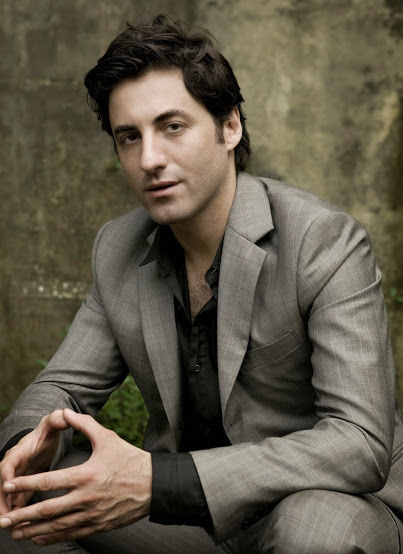
(Photo credit: Lisa-Marie Mazzucco)
Quint’s persistence panned out. At this point, he has performed the concerto over 200 times, re-evaluating the work’s possibilities without losing his fascination for its ingenious writing and historic context. In the recording’s liner note, Quint describes Tchaikovsky’s “fire of inspiration,” when composing the concerto. In personal correspondence about writing the concerto, a process that took less than a month’s time, Tchaikovsky described his progress, saying: “Everything I have written today will have the power to enter the heart and make lasting impressions on it.”

Tchaikovsky was personally inspired by violinist Iosif Kotek, a student of Hrimaly and Joachim, whom he met at the peaceful lakeside villa retreat in Clarens, Switzerland after fleeing Russia. “I could never have done anything without his support,” he wrote, but he worried about causing gossip about his relationship with the virtuoso and eventually dedicated the concerto to the eminent performer Leopold Auer, professor at the St. Petersburg conservatory. Auer’s famously critical stance towards the concerto and its outright “bashing” from critics such as Eduard Hanslick, who depicted its dramatic finale as “leaving a stink in the ear,” led to numerous edits, including revisions of its solo part and cuts in its finale. According to Auer, these changes were made with the consent of Tchaikovsky, who is rather known for accepting alternative suggestions concerning his work.
Jascha Heifetz, one of Auer’s famed students, favored the edited version, although the original version was favored by some protagonists, including Bronislaw Huberman.
Quint offers both versions here with great gusto, acknowledging the choice and difference of opinion, and letting the listener make up his own mind as to which version is preferable. Quint is supported by the Sofia Philharmonic under Martin Panteleev, making for an enthusiastic musical rapport, despite the less than ideal acoustics at Bulgaria Hall.

Photo Credit: Jeff Gerew
Pairing the concerto with Arensky’s quartet puts further attention on the background, which ties these composers and their works together historically.
Arensky shared his great admiration for Tchaikovsky’s work with his students, including Rachmaninoff, Scriabin, and Gliere.
Intended as a memorial to Tchaikovsky, Arensky’s quartet, Op.35, includes themes of the master’s Chansons Enfantines, Op. 54 in the variations of the quartet’s second movement, adding Russian patriotic themes, like the hymn Slava Bogu no nebe slava, which draws from an ancient funeral mass and was also used in the ceremonial tradition of the crowning of the Tsar, turning Tchaikovsky, as Quint observes, into “the Tsar of composers.” Supportive of his fellow musicians, Tchaikovsky had personally vouched for Arensky’s “forgotten” work to be performed –even instead of his own, at least in one instance, as an 1887 letter to Rimsky-Korsakov reveals, asking Rimsky-Korsakov to program Arensky’s work instead of his already famed Romeo and Juliet Overture.
In place of the usual habit of quartet literature, Arensky’s second violin is replaced by a second cello, giving a soaringly mournful quality to the music’s already melancholic character. On this track, Quint collaborated with Lily Francis, Nicolas Altstadt, and Claudio Bohŏrquez, recorded at the concert hall of the Siemens-Villa in Berlin. All in all a great historically inspired addition to one’s library, from a versatile and charismatic artist, we will certainly hear much more from in the near future.
Comments